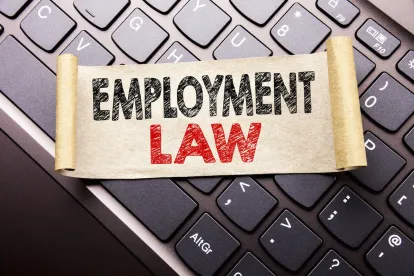In my 27 years of practicing labor and employment law, I have observed a number of repeated preconceptions and points that in my humble opinion are simply wrong. I am not arguing that everyone, or even most people, believes all of these points. However, they have been uttered frequently enough for me to conclude that many share these views. I am also not rejecting the notion that there is legitimate debate as to some of this conventional wisdom.
With those disclaimers, here are my Top 10 instances of false conventional wisdom:
1. Disabled employees are not entitled to special treatment: Of course they are. Non-disabled employees are not entitled to accommodations. Reasonable accommodations can involve all sorts of special treatment, from the elimination of certain job duties to time off, transfers, special equipment and tools, etc. It is true that you can require disabled employees to satisfactorily perform the essential functions of their job, just like everyone else, but they are legally entitled to more, and sometimes a lot more, than other employees.
2. Do not tell employees the reason for termination: Some managers say nothing about why an employee is being terminated or simply offer “we don’t need a reason, you are at-will.” How will that approach resonate with a jury, judge or arbitrator, especially when the employee is long-term? While it is often not productive to go into gory detail, it is better to put the stake in the ground as to the general legitimate business reason for termination. Of course, however, it is better to say nothing than to communicate the wrong reason.
3. Keep investigation results 100% confidential: A certain school of thought, perhaps more in vogue years ago, is that the results of an investigation should not be disclosed to anyone involved. The theory is that complete confidentiality is necessary to protect employees’ privacy. However, under that approach, how does the complainant know if his/her complaint was effective in any way? While discretion must be exercised, informing complainants that discipline has been rendered is often appropriate. Alternatively, sometimes the identity of the complainant is withheld from the accused. While there may be isolated occasions when that is justified (e.g., safety concerns), doing so may violate precepts of due process and fairness.
4. We do not need to accommodate personal restrictions: I am surprised at how often clients state that it is their policy to only accommodate workplace injuries and not “personal restrictions.” This violates the ADA. Whether or not an employee is a covered individual with a disability under the ADA does not generally depend on where or how the employee became disabled.
5. Wages and benefits are the primary reasons for union organizing: While these factors are important, it is often working conditions, lack of due process, or a bad manager that triggers the organizing drive.
6. You cannot terminate someone on FMLA leave: It is true that the circumstances are limited and that employers must carefully assess the situation, but if there is an intervening cause -- such as a reduction in force or discovered evidence of fraud --- you can terminate the employee.
7. Non-compete agreements are unenforceable: While it is getting harder, and this conventional wisdom is generally true in some states, like California, many states still enforce non-competes and require relatively little to do so. For example, at-will employment, or even continued at-will employment when a current employee signs a non-compete, is still sufficient consideration in many states.
8. Settling with an employee will lead to more lawsuits: This is perhaps the most controversial point, as people strongly believe that settlements encourage more lawsuits. It is a legitimate consideration and sometimes they do. But not as much as people commonly believe.
9. You cannot obtain summary judgment in discrimination/retaliation cases because intent is a question of fact: While it is very court- and judge-dependent, smart discovery and a well-drafted motion can lead to summary judgment in many cases.
10. Employers cannot get a fair shake from juries: While some jurisdictions are notorious for this, the runaway verdict does exist, and most jurors will not be business owners or high-level managers, on the whole juries try hard to be fair, and employers can and do win.
We all have entrenched views but it is important to constantly re-examine them for accuracy as we navigate the labor and employment environment.




 />i
/>i

